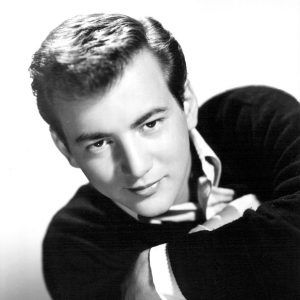calsfoundation@cals.org
Long Line Rider [Song]
“Long Line Rider” is a 1968 rock song written by Bobby Darin based on the Arkansas prison scandals of that same year. While not a commercial success, the song garnered controversy for its subject matter when CBS executives prevented Darin from playing it on a taping of The Jackie Gleason Show in 1969. The song was also mentioned in congressional testimony concerning prison reform in 1971.
In January 1968, Tom Murton, the superintendent of the Cummins Unit in the Arkansas prison system—with the help of an African American inmate informant—dug up several bodies on the prison grounds that he believed had been murder victims. The ensuing scandal became fodder for national and even international headlines, embarrassing Governor Winthrop Rockefeller, who was running for reelection that fall. Murton was fired in March by the state prison board, but the Cummins story would not go away. It is uncertain how much Darin knew about the prisons, but the term, “long line rider,” that he used for the song’s title obviously caught his attention.
“Long line rider” refers to armed men who patrolled inmates working in the fields at the Cummins and Tucker units, plantation-style prisons where men were compelled to pick cotton, soybeans, and other crops for market. At the time the song “Long Line Rider” was released, the Arkansas penitentiary was run almost entirely by prisoners. Long line riders—who were part of the larger “trusty” group at the top of the inmate hierarchy—were a formidable presence on the prison farms. Armed with shotguns and pistols, they rode horseback and enforced discipline in the fields. The prison farms were rife with every manner of corruption and brutality, and long line riders were a powerful symbol of the maliciousness within the system.
By 1968, New York native Bobby Darin (born Walden Robert Cassotto in 1936)—who had co-written “Splish Splash” in 1958 and had had hits with “Mack the Knife” and “Beyond the Sea”—wanted to get away from music he considered “plastic.” He issued only two albums on his own record label Direction, but they featured music that was more politically pointed and socially conscious than his previous output. “Long Line Rider,” biographer David Evanier wrote, was one of the “heavy and thematic” tunes Darin recorded on his label. By this time, he had also embraced the folk movement, as with his cover of “If I Were a Carpenter.” Musically, “Long Line Rider” was a straight-forward, up-tempo rock song that Darin issued on Direction. The single clocked in at 2:57 and was backed by the B-side “Change,” a more subdued tune also penned by Darin.
In November 1968, Darin performed on a television program in which he played “Long Line Rider” as well as his hits. During the “Long Line Rider” segment, he appeared in a denim jacket for what one writer described as a “dramatic change of mood.” The song reflected “Darin’s disgust over an incident at an Arkansas jail [sic].”
The song makes specific reference to Arkansas: “There’s a farm in Arkansas / Got some secrets in its floor,” Darin sings. “Long Line Rider” did not mention Tom Murton or Governor Winthrop Rockefeller by name, nor did it reference Cummins specifically. But anyone who knew about the prison scandals—as well as events happening in an “election year”—would have understood its meaning.
Billboard wrote that the song “should hit hard and fast and take [Darin] right to the top.” But “Long Line Rider” did not sell well. Even so, when Darin was asked to perform on The Jackie Gleason Show in January 1969, producers asked that he not sing “Long Line Rider.” Darin walked off the show in protest. “I don’t care if I never do another TV show in my life,” he said, “they are not going to interfere with my right to express myself.” Darin noted that he had performed the song on other networks—as on his November 1968 broadcast—without incident. It was reported that he planned to sue CBS for censorship, but it is unclear what became of the lawsuit or if he carried through on his threat.
The wife of an inmate in the Arkansas prison system was a fan of Darin’s. She wrote (in a letter presented during congressional testimony on juvenile delinquency in 1971) to Tom Murton, saying she always got a “kick” out of “Long Line Rider,” adding, “I never go into a café that has it on the Jukebox without playing it.” She believed it “tells a true story and regardless of these people that can’t stand the truth, they need to hear it.”
Though it was not a hit, “Long Line Rider” is notable among prison songs and fits well into a further subgenre: songs about Cummins. One can place it among “Cummins Prison Farm” by Calvin Leavy, Johnny Cash’s (never recorded in studio) “When I Get Out of Cummins,” and Bobby Womack’s “Arkansas State Prison.”
Former Arkansas inmates have used the term long line rider for their own works. K. Wymand Keith titled his 1971 novel, about his time at Cummins, Long Line Rider. The term was also used for a 2015 self-published book by former Arkansas inmate Bobby G. Priest. Darin’s song has also been referenced by authors who explore dark themes. Writer R. S. Belcher included lyrics from the tune in his novel King of the Road—so, too, did Stephen King and Peter Straub in The Talisman.
For additional information:
Berry, Randal. “‘Long Line Rider’: A Reminder of an Old Prison Scandal.” Arkansas Democrat-Gazette, June 5, 2023. https://www.arkansasonline.com/news/2023/jun/05/long-line-rider/ (accessed February 22, 2024).
Cunningham, Jimmy, Jr., and Donna Cunningham. Delta Music and Film: Jefferson County and the Lowlands. Charleston, SC: Arcadia, 2015.
“Darin Shows Social Pop Sides in Varied Program.” Billboard, November 16, 1968, p. 14.
Evanier, David. Roman Candle: The Life of Bobby Darin. Albany: State University of New York Press, 2010.
Keith, K. Wymand. Long Line Rider: The Story of Cummins Prison Farm. New York: McGraw-Hill, 1971.
Priest, Bobby G. Long Line Rider: Convict vs. Convict. N.p.: CreateSpace Independent Publishing, 2015.
Wilson, Earl. “Censored Darin Sings a Song of Protest.” New York Post, February 1, 1969.
Colin Edward Woodward
Richmond, Virginia
 Divergent Prosperity and the Arc of Reform, 1968–2022
Divergent Prosperity and the Arc of Reform, 1968–2022 Music and Musicians
Music and Musicians Bobby Darin
Bobby Darin 



Comments
No comments on this entry yet.